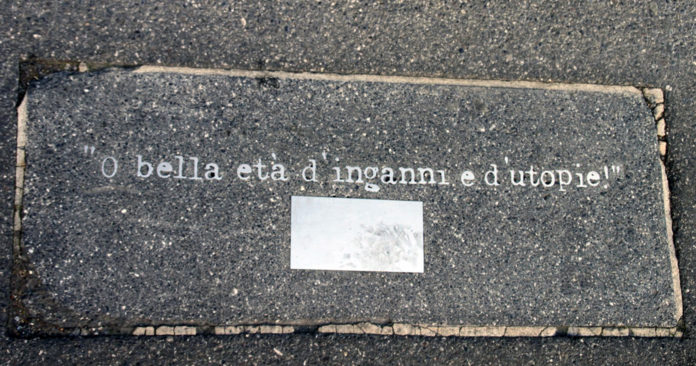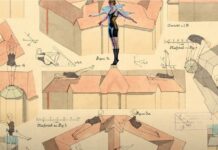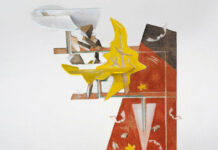
06.05. – 11.05.2019; Götzis
Real Utopias. The “Days of Utopia” in Götzis/Vorarlberg transform criticism of the system into real convertible visions for a fairer world.
In Vorarlberg, utopias stand on solid ground. If you stroll through the inner city of Bregenz, you can discover tablets embedded in the ground. One of them says in Italian: “Oh beautiful time of illusions and utopias”: Critical lateral thinking with ground adhesion, so to speak. This is also the motto of the “Days of Utopia”, initiated by Hans Joachim Gögl and Josef Kittinger, that take place annually at the tranquilly situated Youth and Education Centre St. Arbogast in Götzis. This year, the focus is on the question of how constructive visions can be developed from fundamental criticism of contemporary problems.
Architect Roland Gruber, co-founder of the “LandLuft” association which focuses on the development of rural areas, has devoted himself to the development of strategies for the liveable design of places and their social structures in numerous projects. One of the most pressing problems in many places is the erosion of town centres due to urban sprawl and the relocation of trade structures to the suburbs. Under the motto “Aus Donuts müssen Krapfen werden”, Gruber discusses social and planning strategies to solve such problems in Götzis.
During the “Tage der Utopie”, journalist and internet expert Ingrid Brodnig deals with the question of what design possibilities we have to make the internet an instrument again, where free, constructive, democratic discourse can take place under fair rules and with fair distribution of power – in accordance with the originally associated vision. In doing so, Brodnig follows a simple premise: The internet is man-made. It can also be altered by man.

Konstanz psychologist, peace researcher and human rights activist Thomas Gebauer, whose co-initiated campaign against landmines was honoured with the Nobel Peace Prize in 1997, examines the often double-edged structures of aid programmes between charity and national economic promotion, which is often disguised as development assistance, at the “Tage der Utopie” festival. Furthermore, he formulates hypothesis of a “diff erent help” that would be able to dissolve structural violent relations.
With her book “Wut – Was Islamismus und Rechtsextremismus mit uns machen” (“The Rage: The Vicious Circle of Islamist and Far Right Extremism“) published in 2017, extremism researcher Julia Ebner has sparked a large media debate. Regarding the vicious circle of Islamic and right-wing extremism goading each other, she calls the silent liberal centre to action since its inactivity caused the rage on the margins of society to grow in the fi rst place. During the “Tage der Utopie”, Ebner exposes the communication strategies of extremists and provides the analysis of a discourse on the question of what each individual can contribute to the curbing of baiting and social division and to the establishment of a socially integrated society.
The “Tage der Utopie” in Götzis create a framework which shows possibilities for thinking and acting that demonstrate how we do not have to surrender to the complex challenges of the present. Because only those who have no visions, will need a doctor soon.
Tage der Utopie
Lectures, Discussions, New Music
06.05. – 11.05.2019
www.tagederutopie.org
Monday, 06.05.2019
Kloster für Innovation
Dark Horse: Organisational development/business culture
Tuesday, 07.05.2019
The fair web. An internet utopia
Ingrid Brodnig
Wednesday, 08.05.2019
Aus Donuts müssen Krapfen werden!
Development strategies for rural areas
Roland Gruber
Thursday, 09.05.2019
The future of political dialogue.
How to regain political discourse from right wing populists
Julia Ebner
Friday, 10.05.0219
Utopia of helping. Exits out of global crisis
Thomas Gebauer











